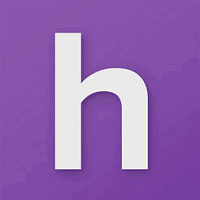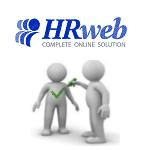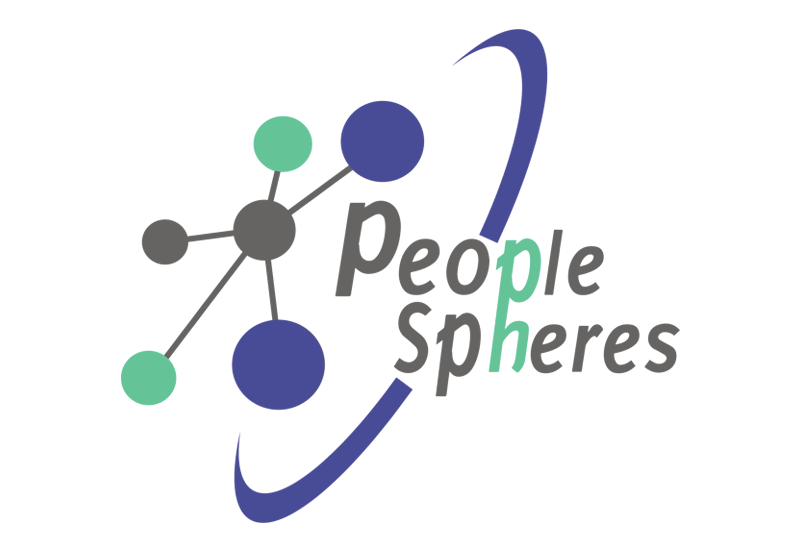Description

Homebase

HRweb

PeopleSpheres
Comprehensive Overview: Homebase vs HRweb vs PeopleSpheres
Certainly! Here is a comprehensive overview of Homebase, HRweb, and PeopleSpheres, focusing on their primary functions, target markets, market share, user base, and key differentiating factors:
Homebase
a) Primary Functions and Target Markets:
- Primary Functions: Homebase is a comprehensive workforce management tool designed to simplify processes like scheduling, time tracking, payroll, hiring, and team communication. It offers features such as online timesheets, shift scheduling, team messaging, and employee onboarding.
- Target Markets: Homebase primarily targets small to medium-sized businesses (SMBs), particularly those in the retail, hospitality, healthcare, and service sectors. These businesses benefit from simple yet effective tools for managing employee operations efficiently.
b) Market Share and User Base:
- Homebase is well-established in the small business space, with a significant presence among retailers and restaurants. It boasts a large user base, largely attributed to its accessibility and free basic plan, which encourages adoption among smaller businesses with limited budgets.
c) Key Differentiating Factors:
- Ease of Use: Homebase is known for its intuitive interface, making it accessible even for those with little technical expertise.
- Free Plan Availability: The availability of a robust free plan makes it attractive to small businesses looking to minimize costs.
- Industry Focus: Its focus on the specific needs of hospitality and retail sectors makes it particularly valuable to those industries.
HRweb
a) Primary Functions and Target Markets:
- Primary Functions: HRweb offers performance management, applicant tracking, time-off tracking, employee record management, and goal setting. It's designed to help businesses streamline HR processes, improve performance, and maintain compliance.
- Target Markets: HRweb is aimed at small to medium-sized businesses seeking to enhance their HR operations. It caters to a wide range of industries by focusing on improving human resource efficiency.
b) Market Share and User Base:
- HRweb holds a modest market share. Its user base includes businesses looking for cost-effective HR solutions that offer more functionality than basic tools but do not require the investment in enterprise-level software.
c) Key Differentiating Factors:
- Performance Management: HRweb places a strong emphasis on performance management features compared to other SMB-focused HR tools.
- Simplicity and Cost-Effectiveness: It offers straightforward solutions that are easier to implement and use, appealing to businesses looking for an affordable HR management system.
PeopleSpheres
a) Primary Functions and Target Markets:
- Primary Functions: PeopleSpheres offers a modular platform that connects various HR systems and tools, aiming at providing a unified experience. Its features include HR analytics, talent management, payroll integration, and employee engagement.
- Target Markets: PeopleSpheres is designed for medium to large-sized enterprises that already have multiple HR systems and need a way to integrate them into a cohesive platform. It targets businesses looking for customizability and scalability.
b) Market Share and User Base:
- PeopleSpheres is relatively specialized, catering to larger organizations that require sophisticated integration solutions. Its market share is smaller compared to general HR software, focusing on clients that need high customization and integration capabilities.
c) Key Differentiating Factors:
- Integration Capability: The platform's ability to integrate with various HR tools and systems is its primary strength, addressing the need for a centralized HR experience.
- Customization and Scalability: PeopleSpheres is highly customizable, making it suitable for companies with complex and evolving HR needs.
- Focus on Large Enterprises: Its target demographic is significantly different, focusing on large enterprises rather than smaller businesses.
Summary Comparison
- Market Focus: Homebase targets SMBs in specific industry sectors (retail, hospitality), HRweb aims at SMBs across various industries, while PeopleSpheres caters to larger enterprises with complex HR systems.
- Functionality: All three offer core HR functionalities, but Homebase is notable for its scheduling and time tracking, HRweb for its performance management, and PeopleSpheres for system integrations.
- Ease of Use vs. Complexity: Homebase and HRweb emphasize simplicity, while PeopleSpheres provides advanced integration and customization for larger needsc.
Each platform is tailor-fitted to different business scales and needs, offering unique solutions to cater to their target markets.
Contact Info

Year founded :
1986
Not Available
Not Available
United States
Not Available

Year founded :
Not Available
Not Available
Not Available
Not Available
Not Available

Year founded :
2015
+33 1 77 69 49 70
Not Available
France
http://www.linkedin.com/company/peoplespheres
Feature Similarity Breakdown: Homebase, HRweb, PeopleSpheres
When comparing Homebase, HRweb, and PeopleSpheres, it's helpful to focus on their core functionalities, user interfaces, and unique features. Below is a breakdown based on available information about these HR solutions:
a) Core Features in Common
-
Employee Management:
- All three platforms offer employee profiles and basic management functionalities like tracking personal information, documentation, and job details.
-
Time and Attendance:
- All solutions provide tools to manage time and attendance, including clock-in/out features, time tracking, and leave management.
-
Scheduling:
- The platforms support scheduling capabilities to create and manage employee work schedules.
-
Reporting and Analytics:
- Common features also include reporting and analytics tools to provide insights into various HR metrics, such as attendance, overtime, and employee performance.
-
Onboarding:
- Each software offers onboarding features that help automate and streamline the process of integrating new hires.
b) User Interface Comparison
-
Homebase:
- Known for its user-friendly interface, Homebase focuses on simplicity and ease of use. It often appeals to small and medium-sized businesses looking for quick deployment and straightforward navigation.
-
HRweb:
- HRweb has a slightly more traditional interface designed to accommodate detailed HR workflows. It provides more extensive administrative controls, which might appear a bit complex but offer depth in functionalities.
-
PeopleSpheres:
- PeopleSpheres positions itself as a customizable and flexible solution with a modern interface that integrates other HR tools through its platform. It could be considered more adaptable due to its focus on integration.
c) Unique Features
-
Homebase:
- Communication Tools: Homebase emphasizes team communication and offers built-in messaging features for better collaboration among employees.
- Job Posting and Applicant Tracking: Homebase uniquely integrates job posting and applicant tracking to streamline the hiring process directly.
-
HRweb:
- Performance Management: Offers an extensive set of tools for performance evaluations, goal setting, and feedback management, which exceeds the basic capabilities found in some other platforms.
- Compliance Tracking: HRweb provides strong compliance tracking tools, helping organizations ensure they meet regulatory requirements.
-
PeopleSpheres:
- Integration Capabilities: As a core strength, PeopleSpheres is designed to integrate multiple existing HR tools into one cohesive platform, offering more flexibility for businesses that use a mix of different HR solutions.
- Customization Options: The platform provides robust customization features, allowing businesses to tailor the software to better fit their unique processes.
In summary, while Homebase, HRweb, and PeopleSpheres share several core HR functionalities, they each have distinct strengths and unique features that may appeal to different types of organizations depending on their specific needs and size. Homebase is often preferred by smaller businesses due to its simplicity, HRweb offers depth in compliance and performance tracking, and PeopleSpheres excels in integration and customization capabilities.
Features

Not Available

Not Available

Not Available
Best Fit Use Cases: Homebase, HRweb, PeopleSpheres
When considering HR and workforce management solutions like Homebase, HRweb, and PeopleSpheres, it's essential to match their features and capabilities with your business's specific needs and constraints. Here's a breakdown of their best-fit use cases:
a) Homebase
- Types of Businesses or Projects: Homebase is most suitable for small to medium-sized businesses, especially those in the retail, restaurant, and hospitality sectors. It caters well to businesses with hourly workers or teams that require efficient scheduling, time tracking, and communication.
- Best Choice Features:
- Employee Scheduling: Easily create and manage schedules, track hours, and manage shift swaps.
- Time Tracking: Simple tools for clocking in and out, reducing time theft, and ensuring accuracy in payroll.
- Team Communication: Built-in messaging to facilitate communication among staff, which is crucial in industries that rely on a large number of part-time or shift workers.
- Industry Vertical Fit: Ideal for industries with dynamic work schedules and a need for robust scheduling abilities like retail, food service, and small local businesses.
b) HRweb
- Preferred Scenarios: HRweb is more applicable for businesses seeking performance management, applicant tracking, and various HR functions. It's a fit for companies that need an intuitive system for handling HR processes beyond basic time tracking and scheduling.
- Best Choice Features:
- Performance Management: Tools to set goals, evaluate employees, and conduct reviews.
- Applicant Tracking: Helps manage the hiring process, from job postings to onboarding.
- HR Management: Handles employee records, benefits, and compliance, providing a more comprehensive HR suite.
- Industry Vertical Fit: Suitable for companies across various industries needing comprehensive HR services but without the complexity required by very large enterprises.
c) PeopleSpheres
- When to Consider: PeopleSpheres is tailored for medium to large businesses that require integration of multiple HR tools and platforms. It acts as a customizable platform that unifies different HR systems under one interface, which is beneficial for complex organizations with diverse HR needs.
- Best Choice Features:
- Integration Capabilities: Connects various HR software applications, creating a streamlined and centralized HR management system.
- Customization: Offers flexible and scalable solutions that can be tailored to a company’s specific processes.
- Analytics and Insights: Provides detailed reports and analytics, helping organizations make data-driven HR decisions.
- Industry Vertical Fit: Targeted at larger businesses in need of a highly customizable and integrated HR system, suitable for diverse industries, including technology, manufacturing, and professional services.
d) Catering to Different Industry Verticals or Company Sizes
- Homebase is specifically designed for smaller businesses needing affordability and simplicity, focusing on hourly workforce management.
- HRweb caters to a broad range of industries looking for a deeper dive into HR functionalities without the complexity of larger systems, fit for small to medium-sized companies.
- PeopleSpheres provides the most flexibility in terms of integrations and customization, making it suitable for medium to large enterprises requiring a more unified and comprehensive HR solution.
Each solution offers distinct features that cater to different business needs, scales, and industry requirements. The choice among them should be informed by the specific operational demands and growth plans of the business in question.
Pricing

Pricing Not Available

Pricing Not Available

Pricing Not Available
Metrics History
Metrics History
Comparing teamSize across companies
Conclusion & Final Verdict: Homebase vs HRweb vs PeopleSpheres
When evaluating Homebase, HRweb, and PeopleSpheres, it's essential to consider several factors such as pricing, feature set, ease of use, customer support, and scalability. Here's a detailed analysis:
Conclusion and Final Verdict
a) Best Overall Value:
- Homebase emerges as the best overall value for small to medium-sized businesses, especially those in the retail and service sectors. Its competitive pricing, comprehensive features tailored for scheduling and time management, and user-friendly interface make it an attractive option for many SMEs.
b) Pros and Cons:
-
Homebase:
- Pros:
- Excellent scheduling and time-tracking features.
- User-friendly interface suitable for small businesses.
- Offers a free plan with core features.
- Seamless integration with payroll and POS systems.
- Cons:
- Limited features beyond basic HR functions; not ideal for larger companies requiring advanced HR functionalities.
- Customization options can be somewhat limited compared to more robust systems.
- Pros:
-
HRweb:
- Pros:
- Strong focus on performance management and employee evaluation.
- Offers comprehensive HR functionalities suitable for performance tracking and recruitment.
- Affordable pricing structure for core HR needs.
- Cons:
- Interface can be somewhat dated and not as intuitive as competitors.
- Limited integration options, which can be a challenge for companies with multiple existing software needs.
- Pros:
-
PeopleSpheres:
- Pros:
- Extremely flexible and scalable, suitable for larger enterprises.
- Customizable dashboard and integration capabilities for a unified HR experience.
- Strong capabilities in data management and reporting.
- Cons:
- Higher cost, which might not be justified for small businesses.
- Steeper learning curve due to its comprehensive feature set and customization options.
- Pros:
c) Recommendations for Users:
-
Homebase: Ideal for small to medium-sized businesses primarily looking for effective scheduling and time-tracking tools with basic HR functions. If cost-effectiveness is a priority and the core needs revolve around employee scheduling, Homebase is a strong contender.
-
HRweb: Best suited for companies that prioritize performance management and employee evaluation. If your organization values these elements and operates on a budget that doesn't require intricate scalability or high customization, HRweb is a reasonable choice.
-
PeopleSpheres: Recommended for larger enterprises or those anticipating rapid growth, requiring a highly customizable and scalable HRM system. If your organization needs a system that can integrate numerous existing tools and provides extensive data analysis capabilities, PeopleSpheres is the way to go.
Ultimately, the choice among Homebase, HRweb, and PeopleSpheres should be guided by your company's size, specific needs, budget, and the complexity of HR demands. Smaller businesses with a strong emphasis on scheduling may find Homebase substantially beneficial, while those needing robust performance tracking might lean towards HRweb. In contrast, larger companies requiring an integrated and customizable HR solution may prefer PeopleSpheres.